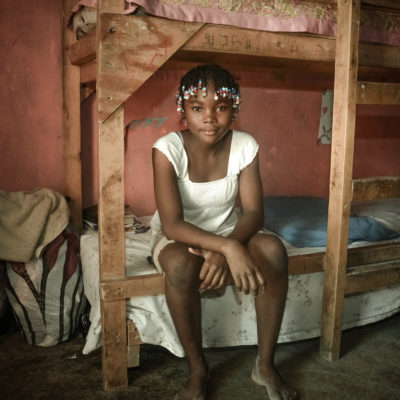
Relative adoptions, also known as a kinship adoption, are an option in many countries for vulnerable children. But the process is determined by several factors, including the sending and receiving country’s adoption laws and whether the countries are signatory to the Hague Convention. All countries however, must observe that the best interests of the child are being observed and considered.
Many families seeking to adopt children through international adoption are hoping to adopt a relative child (a sibling, grandchild, niece or nephew for instance) who has become parentless due to the death or abandonment of a loved one. The death of a family member is always tragic for a family, but even more so when children are left behind without a parent to provide love and care for them. Most countries agree that the best option for a child who has lost a parent or both parents, is for the child to be adopted by a family member and raised by that biological family member. Relatives seeking a kinship adoption are willing to make great sacrifices of energy, time and money for a child they are related to suddenly finding themselves without a loving parent. MLJ Adoptions applauds these prospective adoptive parents, but before beginning a kinship adoption, they should be fully aware of the adoption journey they are about to travel.
Prospective adoptive families must understand that although they are trying to adopt a relative and understandably they feel an urgency, intercountry adoption laws still apply in both the sending country (where the child resides) and the receiving country (where the adoptive parents reside). If both countries are signatory to the Hague Convention, the adoption must follow a pre-determined path, receiving approvals from the Central Authorities of both countries to adopt the child, before the legal adoption process can begin. Approvals from both countries must be received prior to beginning the legal adoption process to ensure the child can be approved for a U.S. visa. If this process is not adhered to, it can further delay the adoption process and the child’s ability to join the adoptive parents. For all prospective U.S. adoptive parents, at least one parent must be a U.S. citizen and if married, the second parent must be a U.S. citizen or a legal permanent resident.
If the country you are adopting from is not signatory to the Hague Convention, families are still required under the Universal Accreditation Act (UAA) to utilize the services of a primary provider to supervise their adoption process. The services of a primary provider are required to ensure the child can be approved for a U.S. visa. The primary provider is charged with supervising your adoption process from beginning (home study) to end (issuance of the child’s visa), to ensure that the adoption follows an ethical path, follows all regulations and is in the best interest of the child.
Unfortunately, there are some countries where adoptions by U.S. adoptive parents are not allowed, regardless of the fact that it is a kinship adoption. This solidifies the need to review the adoption laws of both countries prior to investing any time or money in an adoption process that won’t be successful because it isn’t possible.
MLJ Adoptions has assisted families adopting relative children in many countries such as in Haiti, Nigeria and Zimbabwe. MLJ understands families trying to adopt relative children are already in crisis, children and other family members are already traumatized and see an urgency to bringing the child into their home. It is essential however that families understand the adoption process both abroad and in the U.S. and ensure the adoption follows a correct path, so that no unnecessary delays occur, further delaying the child’s ability to travel to the United States and into their care.
If you are interested in adopting a relative please contact us.
Photo Credit: Feed My Starving Children
